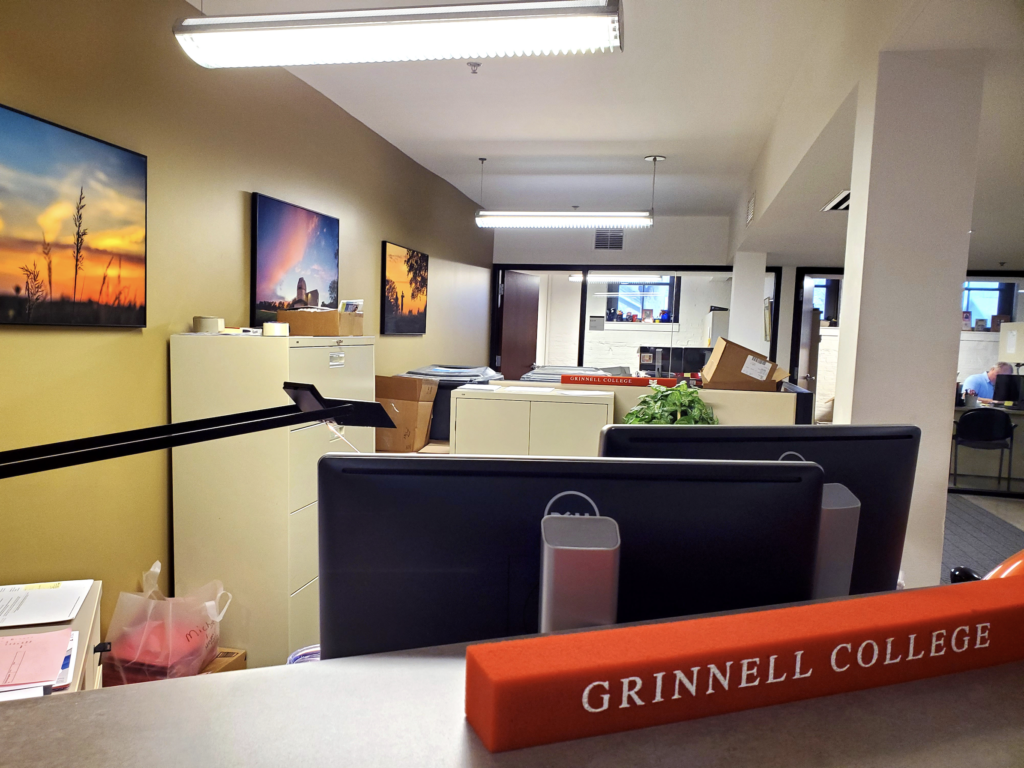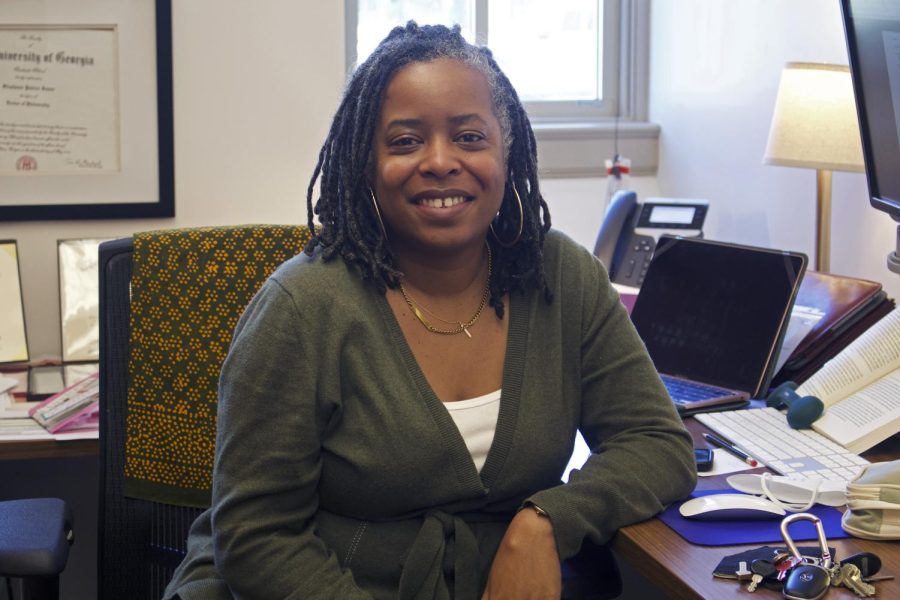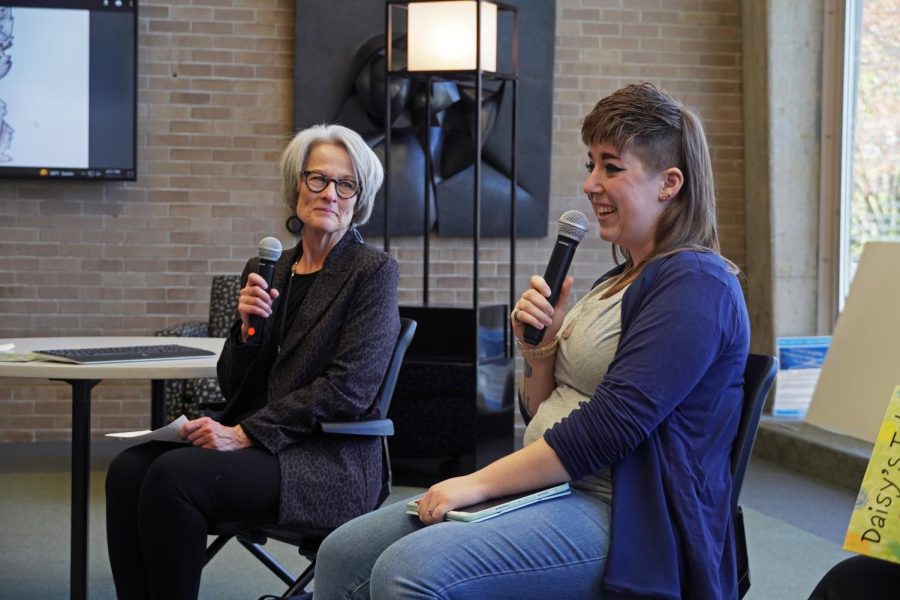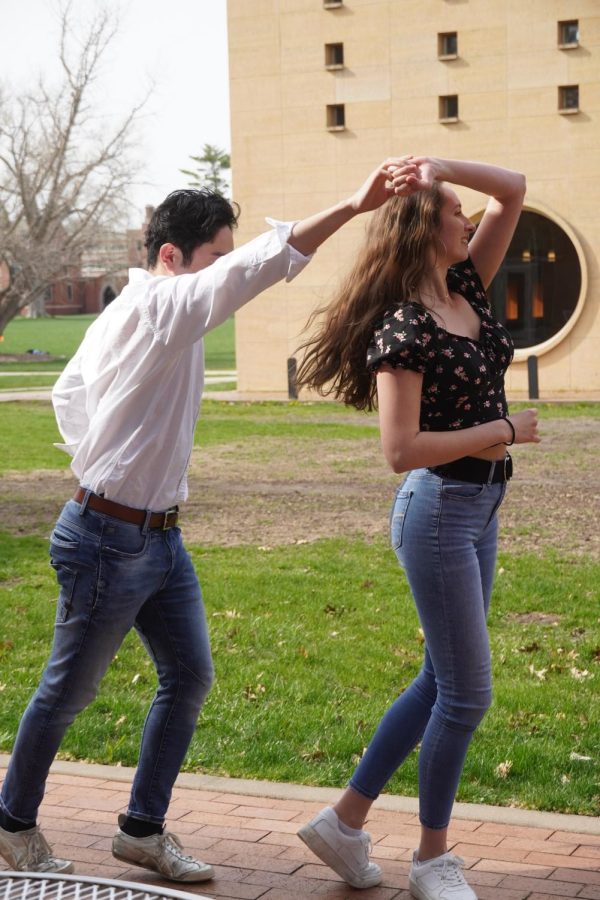Lilli Morrish `25 worked 42 hours as a Scarlet & Black staff writer in the fall semester. In September, she received paychecks from the College for the wages she earned during the first two pay periods. Then, in October, the College stopped paying her.
Morrish started sending emails to the payroll office and to her supervisor Ashley Adams, associate director of student involvement, to solve the problem. Morrish’s student supervisors at the S&B, editors in chief Abraham Teuber and Eva Hill (both `22) started sending Adams and the payroll office emails on her behalf.
But by December, Morrish was still not receiving payment by the College. Only in February 2022, after several rounds of emails with Adams and payroll technician Carrie Jones, did Morrish begin receiving payment for her new job as S&B arts editor. And on Tuesday, March 1, Morrish finally received $389.34 in back pay, more than five months after her first missed paycheck.
Morrish is not alone. The Scarlet & Black has documented cases not only affecting student workers within the paper staff but from Dining Services, KDIC, Grinnell College Press, the Bear and Research Assistant positions. Some student employees in each of these organizations have not received accurate or timely payment from the College, potentially violating Iowa Wage Payment Collection Law.
The Iowa Wage Payment Collection Law (Iowa Code Chapter 91A) details that regular paydays may not occur more than 12 days, excluding Sundays and legal holidays, after the last of the pay period in which the wages were earned. Employers that violate this provision can incur up $500 per pay period per violation in penalties, if ordered by a judge.
Employers do not have to be willful violators of this law to incur damages. Lack of oversight or negligence on behalf of the employer is sufficient to be considered a violator.
In the fall semester, Savva Pettengill `23 was employed as an assistant manager for KDIC, the College’s student-run radio station. Pettengill, along with two other employees at KDIC, received instructions to log the hours they worked manually into a spreadsheet because none of them had received access to NOVATime, the College’s online payroll software, from the payroll office. At the end of each pay period, the KDIC employees were told to submit their manual timecards to KDIC student supervisor Erin Ritter `22.5, who would then provide them to Adams.
In total, Pettengill said he submitted around 70 hours via manual timesheets, which would total at least $630 in earnings. But when he checked his bank account in December 2022, he saw only one deposit from the College: a paycheck of $10. He was never notified that he was not receiving accurate payment.
“I didn’t notice this until the end of the semester. I just assumed it was going in [my account] the whole time,” he said. “Now, I’ve had to take out federal loans to cover just the absence of tuition income.”
Pettengill also said he suspects that the $10 is for one hour of Dining Hall training (which he did not complete), because he had worked at the Dining Hall previously, but that he cannot be certain.
Pettengill said he’d been persistent in notifying the payroll office of his missed wages, including via email and phone calls directly to the office. Pettengill also alleged that a member of the payroll office suggested Ritter was the source of the problem when Pettengill’s father called the payroll office.
As of Tuesday, March 1, Pettengill has not received backpay.
Other students have also claimed to have never been paid for hours logged via manual timecards.
Allison Moore `24, S&B opinions editor, said that she did not receive access to NOVATime until after the end of the first pay period in the fall semester. Since she did not have access to NOVATime, she was instructed by her supervisor to keep her hours logged manually and submit the spreadsheet to Adams at the end of the pay period.
“I sent Ashley Adams my spreadsheet with times I had worked and never received a response about whether I could get these times paid. Then, the first spreadsheet I entered on NOVATime was also not paid to me,” wrote Moore in an exchange with the S&B over Slack.
For Moore, these missed wages inhibited her contribution to the work-study amount embedded in her financial aid plan.
“One of the reasons I chose to come to Grinnell is because I was afforded a financial aid package that would mean I would not have to take out any loans,” she wrote. “However, without these few hundred dollars that I earned, I will have to tap into my savings account to supplement the money that I was shorted.”
Other students have reported facing similar financial difficulties as a result of missed paychecks. David Gales `23, who was employed as a research assistant under Professor Michael Mackenzie, art history, said they received delayed wages for several weeks in March 2021. Though they eventually received backpay for the hours they worked, they said they had to start tutoring two extra clients for their tutoring business because they were not getting paid in the moment.
“And my friends all commented on the fact that I wasn’t around as much,” they wrote. “Kind of shitty all around as a situation, and it makes me incredibly ticked off to know that other students who were in worse circumstances than I was had the same issue or even a more severe ones.”
Gales also alleged that when they received backpay, they were not provided the full amount.
In response to the above allegations, Nancy Combs, associate vice president for finance, wrote in an official statement over email to the S&B:
“All hours entered by student employees in the NOVATime time-reporting system in accordance with student employment policies have been accounted for and have been paid or are being processed in the current payroll. If a student employee does not submit their hours into the NOVATime system by the reporting deadline then staff in payroll must manually enter those hours, which could delay processing.”
In response to reports of not receiving payment even when hours were submitted through NOVATime, Combs declined request for comment.
Now, I’ve had to take out federal loans to cover just the absence of tuition income. – Savva Pettengill `23
Students who clock their hours through systems besides NOVATime also report missing wages. In the Dining Hall, employees log the hours they worked through a Pioneer One-Card swipe system which automatically registers the hours worked under their name. S&B staff writer Ellianna Cierpiot `25 worked in the Dining Hall for two weeks at the beginning of the fall semester before quitting due to personal schedule conflicts.
Cierpiot said they provided two-weeks notice to the Dining Hall before quitting, and worked multiple shifts over the two-week period. As of March 2, Cierpiot said they suspect their Dining Hall wages were not included in their paychecks.
“I was just kind of expecting to get paid. And then I wasn’t,” said Cierpiot. They estimated that they are missing at least $100 in wages from Dining Services. Cierpiot also added that they are still missing several hundred dollars of outstanding wages from their job at the S&B.
While employees of Dining Services may work with the Union of Grinnell Student Dining Workers (UGSDW) to file grievances demanding payment for missing wages, few avenues of redress exist for students employed outside the Dining Hall.
Several students said they’d sent emails asking for assistance or explanation for missing payments, and only received responses from their supervisor or the payroll office after weeks or months.
In one instance, when a student who hadn’t been paid for five months sought clarification for why she wasn’t paid, she received a three-sentence response by Jones reminding her to click “Save” on her NOVATime timecards before submission.
Student employees with outstanding wages may also file a claim with the Iowa Division of Labor, but no student has filed a claim as of Tuesday, March 1.
Jones and Mark Mawe, accounting payroll manager, declined multiple requests for comment.
Adams redirected request for comment to Mark Watts, student employment coordinator. Watts declined to comment.
(Editor’s note: Lilli Morrish is the arts editor for the S&B. Allison Moore is opinions editor for the S&B. Ellianna Cierpiot is a staff writer for the S&B. None were involved in the writing or editing of this article.)






























































